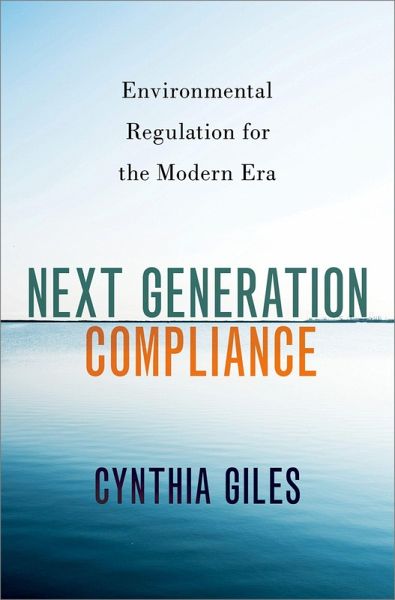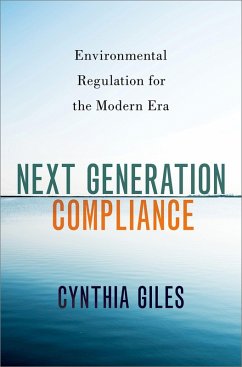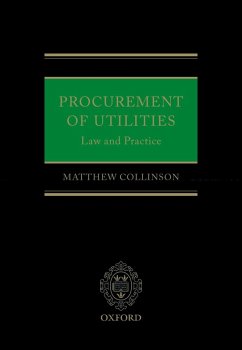
Next Generation Compliance (eBook, ePUB)
Environmental Regulation for the Modern Era
Versandkostenfrei!
Sofort per Download lieferbar
7,99 €
inkl. MwSt.
Weitere Ausgaben:

PAYBACK Punkte
4 °P sammeln!
Nearly everyone accepts as gospel two assumptions: compliance with environmental rules is high, and enforcement is responsible for making compliance happen. Both are wrong. In fact, serious violations of environmental regulations are widespread, and by far the most important driver of compliance results is not enforcement but the structure of the rule itself. In Next Generation Compliance, Cynthia Giles shows that well-designed regulations deploying creative strategies to make compliance the default can achieve excellent implementation outcomes. Poorly designed rules that create many opportuni...
Nearly everyone accepts as gospel two assumptions: compliance with environmental rules is high, and enforcement is responsible for making compliance happen. Both are wrong. In fact, serious violations of environmental regulations are widespread, and by far the most important driver of compliance results is not enforcement but the structure of the rule itself. In Next Generation Compliance, Cynthia Giles shows that well-designed regulations deploying creative strategies to make compliance the default can achieve excellent implementation outcomes. Poorly designed rules that create many opportunities to evade, obfuscate, or ignore will have dismal performance that no amount of enforcement will ever fix. Rampant violations have real consequences: unhealthy air, polluted water, contaminated drinking water, exposure to dangerous chemicals, and unrestrained climate-forcing pollution. They also land hardest on already overburdened communities - that's why Next Gen and environmental justice are tightly linked. The good news is there are tools to build much better compliance into regulations, including many tested strategies that can be the building blocks of programs that withstand the inevitable pressures of real life. Next Generation Compliance shows how regulators can avoid the compliance calamities that plague far too many environmental rules today, a lesson that is particularly urgent for regulations tackling climate change. It has an optimistic message: there are ways to ensure reliable results, if regulators jettison incorrect assumptions and design rules that are resilient to the mess and complexity of the real world.
Dieser Download kann aus rechtlichen Gründen nur mit Rechnungsadresse in A, B, BG, CY, CZ, D, DK, EW, E, FIN, F, GR, HR, H, IRL, I, LT, L, LR, M, NL, PL, P, R, S, SLO, SK ausgeliefert werden.













